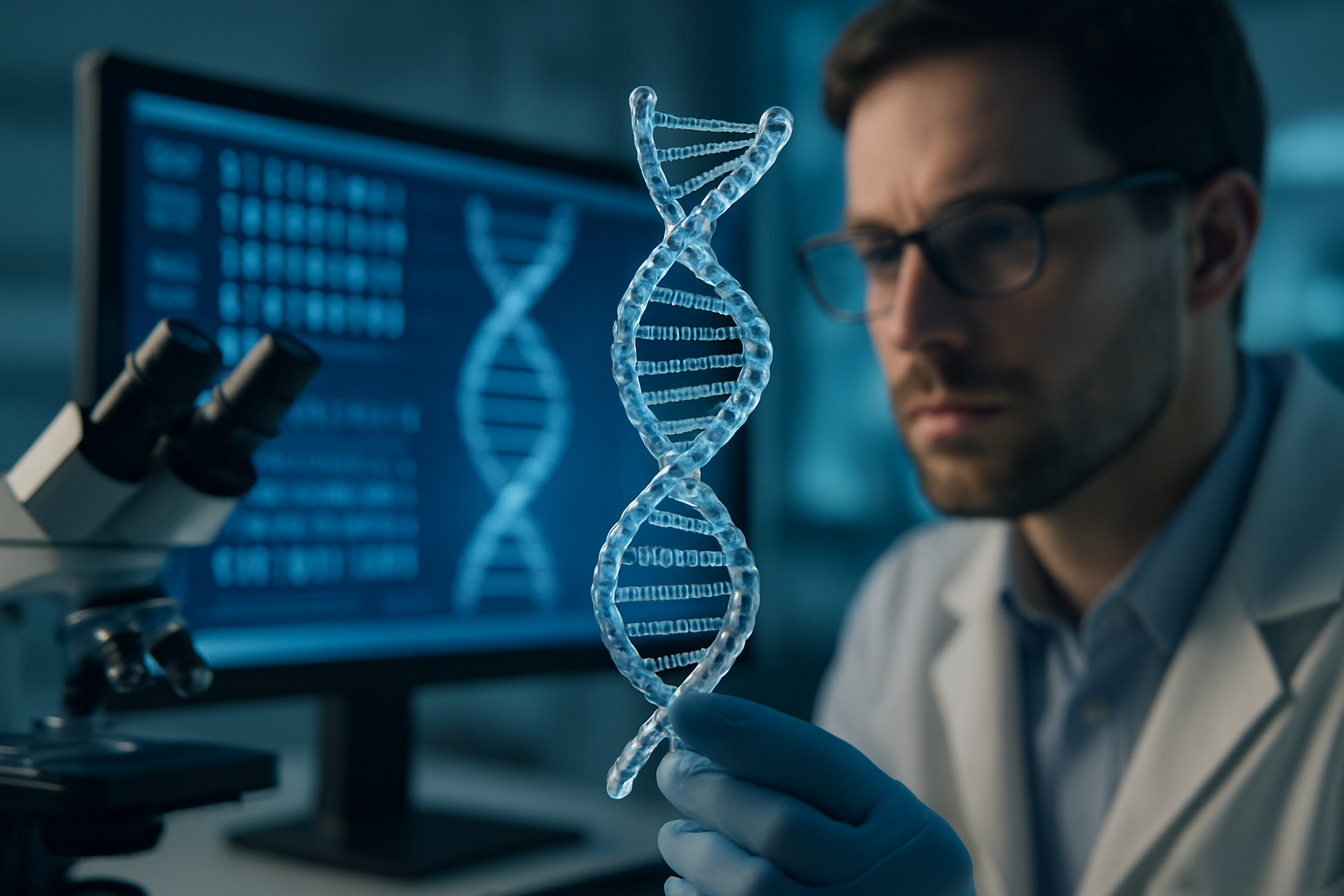Understanding Online DNA Tests: Process, Options, and How They Work
In recent years, online DNA testing has become increasingly popular, offering individuals insights into their genetic makeup, ancestry, and potential health predispositions. This article will explore the world of online DNA tests, explaining how they work, the step-by-step process involved, and the various options available to consumers.

What is an online DNA test and how does it work?
An online DNA test is a service that analyzes a person’s genetic material to provide information about their ancestry, health risks, or other genetic traits. The process begins when a customer orders a DNA testing kit from a company’s website. Once received, the individual collects a DNA sample, typically through a saliva sample or cheek swab, and sends it back to the company’s laboratory for analysis.
At the lab, technicians extract DNA from the sample and analyze specific genetic markers. These markers are compared against vast databases of genetic information to identify patterns and similarities. The results are then compiled into a report, which is made available to the customer through a secure online portal or mobile app.
How does the DNA testing process work step-by-step?
-
Ordering: The customer selects and purchases a DNA test kit from a provider’s website.
-
Sample collection: Upon receiving the kit, the individual follows instructions to collect a DNA sample, usually by spitting into a tube or swabbing the inside of their cheek.
-
Sample return: The sample is sealed and mailed back to the company’s laboratory using the provided packaging.
-
DNA extraction: Lab technicians extract DNA from the sample using specialized equipment and techniques.
-
Genetic analysis: The extracted DNA is analyzed for specific genetic markers using advanced sequencing technologies.
-
Data interpretation: The genetic information is compared against reference databases to identify patterns and draw conclusions.
-
Report generation: A comprehensive report is created based on the analysis results.
-
Result delivery: The customer receives notification that their results are ready and can access them through a secure online platform.
What options of DNA tests are available and how do they differ?
There are several types of DNA tests available, each serving different purposes:
-
Ancestry DNA tests: These tests analyze your genetic makeup to determine your ethnic background and potential relatives. They can provide information about your ancestral origins and help you connect with distant family members.
-
Health DNA tests: These tests look for genetic variants associated with various health conditions and traits. They can provide insights into potential health risks, carrier status for certain diseases, and even wellness factors like nutrition and fitness.
-
Paternity DNA tests: These tests determine biological relationships, particularly between a child and a potential father. They are often used for legal purposes or personal confirmation of parentage.
-
Pharmacogenomic tests: These specialized tests analyze how your genetic makeup might affect your response to certain medications, helping healthcare providers make more informed decisions about prescriptions.
-
Trait DNA tests: These tests focus on identifying genetic markers associated with specific physical or behavioral traits, such as eye color, taste preferences, or sleep patterns.
What unique insights can DNA testing provide?
DNA testing can offer fascinating insights into your genetic makeup and personal history. For example, you might discover unexpected ancestral connections to different parts of the world or learn about genetic traits that influence your physical characteristics. Some tests can even reveal information about your body’s potential response to certain foods or exercises, allowing you to tailor your lifestyle choices accordingly.
Additionally, DNA testing has the potential to uncover important health information. While these tests cannot diagnose conditions, they can alert you to potential genetic predispositions, enabling you to take proactive steps in consultation with healthcare professionals.
How accurate are online DNA tests and what are their limitations?
Online DNA tests can provide valuable insights, but it’s important to understand their limitations. The accuracy of these tests depends on various factors, including the size and diversity of the company’s reference database, the specific genetic markers analyzed, and the interpretation methods used.
Ancestry results, for instance, are estimates based on comparisons to reference populations. Health-related results should be viewed as indicators of potential risk rather than definitive diagnoses. It’s crucial to consult with healthcare professionals before making any medical decisions based on DNA test results.
Moreover, privacy concerns are an important consideration. While reputable companies have strict data protection policies, customers should carefully review how their genetic information will be used and stored before proceeding with a test.
How do different DNA testing providers compare?
| Provider | Test Types | Key Features | Estimated Price Range |
|---|---|---|---|
| 23andMe | Ancestry, Health | Health + Ancestry reports, Relative finder | $99 - $199 |
| AncestryDNA | Ancestry, Health | Largest customer database, Family tree building | $99 - $149 |
| MyHeritage | Ancestry | Extensive historical records, DNA matching | $79 - $199 |
| FamilyTreeDNA | Ancestry, Y-DNA, mtDNA | Detailed ancestral origins, Surname projects | $79 - $449 |
| LivingDNA | Ancestry | Detailed British Isles breakdown | $79 - $149 |
Prices, rates, or cost estimates mentioned in this article are based on the latest available information but may change over time. Independent research is advised before making financial decisions.
In conclusion, online DNA testing offers a fascinating glimpse into our genetic makeup, providing insights into ancestry, health, and personal traits. While these tests have limitations and privacy considerations, they can be valuable tools for those seeking to understand more about their genetic heritage and potential health predispositions. As with any personal health decision, it’s important to approach DNA testing with a clear understanding of its capabilities and limitations.
This article is for informational purposes only and should not be considered medical advice. Please consult a qualified healthcare professional for personalized guidance and treatment.




